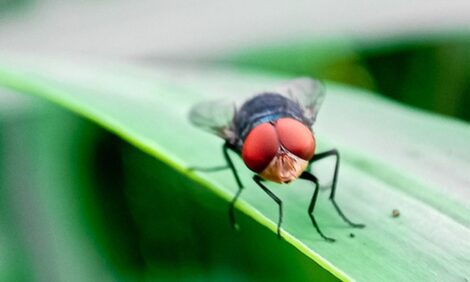



How Safe Are Genetically Modified Foods?
ANALYSIS – Divisions over the safety of Genetically Modified crops and foods have been sharply highlighted the last few weeks in a battle between top scientists, writes Chris Harris.On the one hand, the European Network of Scientists for Social and Environmental Responsibility has rejected claims by seed developers and some scientists and commentators that there is a scientific consensus on the safety of GM.
The organisation says that because there is no real consensus of opinion, decisions on the future of food and agriculture should not be based on misleading and misrepresentative claims that a “scientific consensus” exists on GMO safety.
On the other hand the Agricultural Biotechnology Council says that the overwhelming evidence points to the safety of these crops.
The ENSSER said that a comprehensive review of animal feeding studies of GM crops found “An equilibrium in the number [of] research groups suggesting, on the basis of their studies, that a number of varieties of GM products (mainly maize and soybeans) are as safe and nutritious as the respective conventional non-GM plant, and those raising still serious concerns”.
The scientists said that the review also found that most studies concluding that GM foods were as safe and nutritious as those obtained by conventional breeding.
But it said that these reviews were carried out by biotechnology companies or their associates which are also responsible for the commercial production and marketing of the GM plants.
The scientists added that a separate review of animal feeding studies showing that GM foods are safe included studies that found significant differences in the GM-fed animals.
ENSSER said that there are no epidemiological studies investigating potential effects of GM food consumption on human health and claims that there is a consensus among scientific and governmental bodies that GM foods are safe, or that they are no more risky than non-GM foods are false.
“A statement by the board of directors of the American Association for the Advancement of Science (AAAS) affirming the safety of GM crops and opposing labelling cannot be assumed to represent the view of AAAS members as a whole and was challenged in an open letter by a group of 21 scientists, including many long-standing members of the AAAS,” ENSSER said.
“This episode underlined the lack of consensus among scientists about GMO safety.”
The group added that there is no consensus on the environmental risks of GM crops and international agreements, including the Cartagena Protocol and Codex Alimentarius, which call for a precautionary approach, show widespread recognition of risks posed by GM foods and crops.
ENSSER added that whether the introduction of GM crops and foods into the human food and animal feed supply should be continued, and whether the identified risks are acceptable or not, are decisions that involve socioeconomic considerations beyond the scope of a narrow scientific debate and unresolved biosafety research agendas, but it added that these decisions have to be taken with the support of strong scientific evidence.
“Decisions on the future of our food and agriculture should not be based on misleading and misrepresentative claims that a “scientific consensus” exists on GMO safety,” ENSSER said.
However, Dr Julian Little, chairman of the Agricultural Biotechnology Council said that biotech crops are among the most extensively tested foods in the history of food safety.
“In 2010, the European Commission concluded on the basis of 130 research projects involving 500 independent groups over 25 years that 'there is, as of today, no scientific evidence associating GMOs with higher risks for the environment or for food and feed safety than conventional plants and organisms ,” he said.
“This year, the representative body of the national science academies of the EU Member states agreed, saying that “there is no validated evidence that GM crops have greater adverse impact on health and the environment” than any other crops produced using plant breeding techniques .
“An estimated 3 trillion meals containing GM ingredients have been eaten around the world over the last 13 years without a single substantiated case of ill-health. The World Health Organisation has said that: ‘No effects on human health have been shown as a result of the consumption of such foods by the general population in the countries where they have been approved’.
“This is backed up by government regulators around the world, including the UK FSA, who have a responsibility to protect customers and the environment. The scientists at these independent organisations express confidence that reliable assessments of GM crop safety can be made and that the GM crops available to date are just as safe as conventional plants and foods.
“The overwhelming weight of evidence therefore points to the safety of these crops.”



